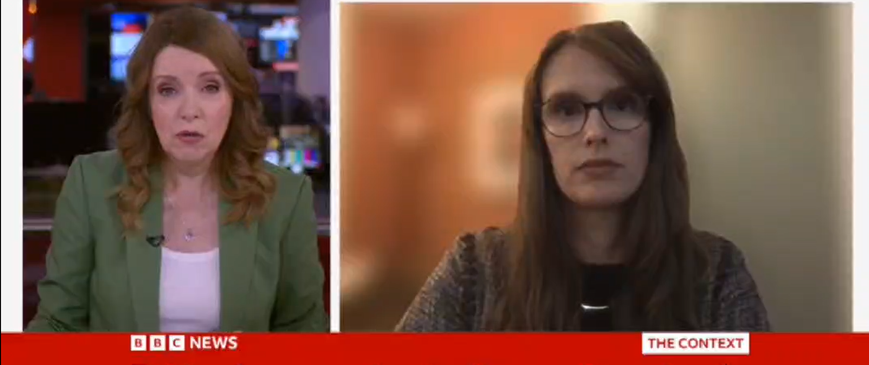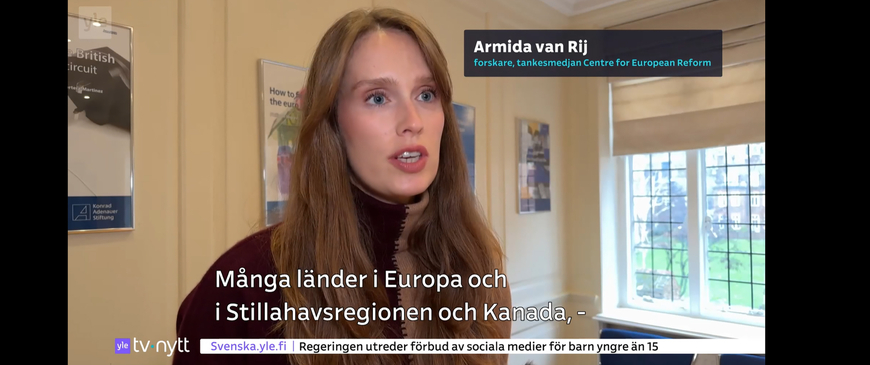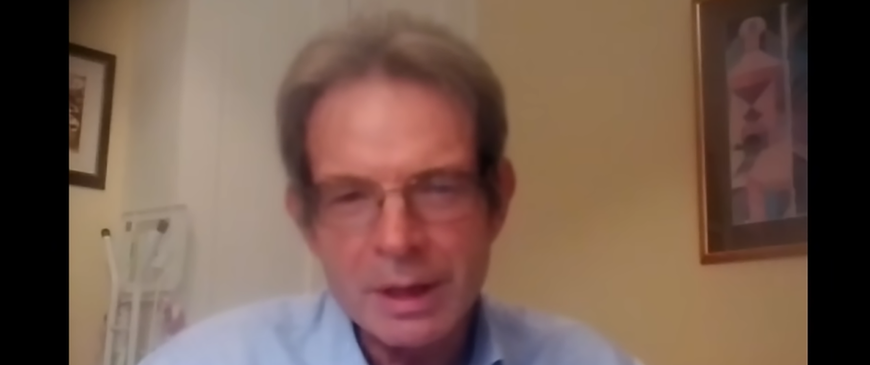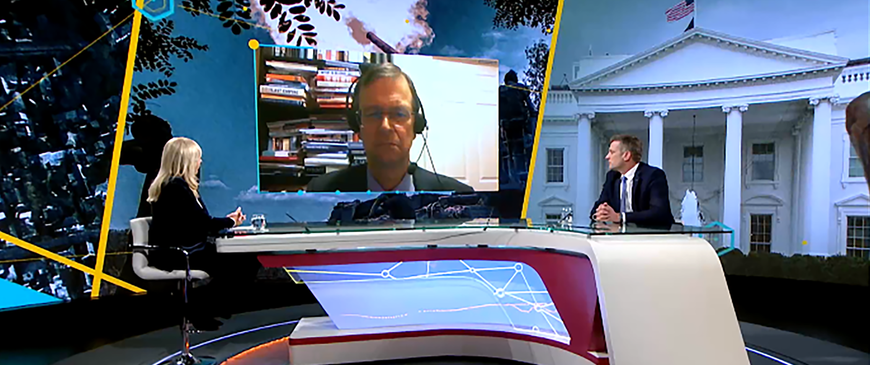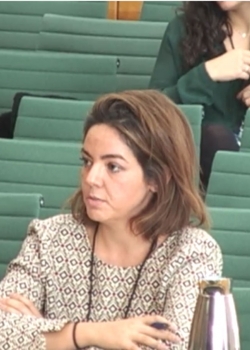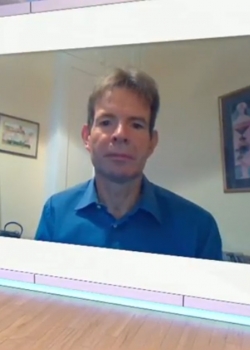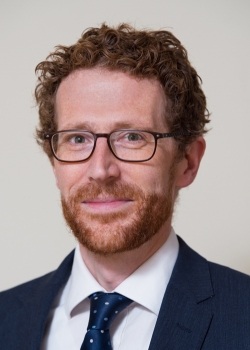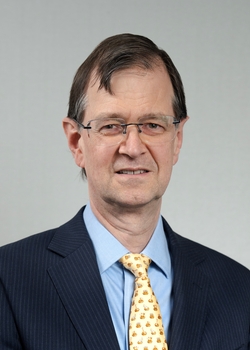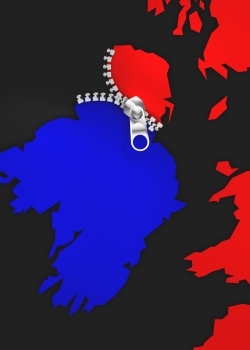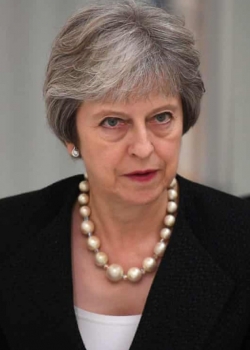Press
RTÉ Radio 1: What happens next in the Brexit process?
15 November 2018
Charles Grant from the Centre for European Reform in London and Brigid Laffan from the European Institute at Florence University discuss the latest on Brexit.
Theresa May must come clean: Her Brexit deal is a dog's breakfast (but is still the best thing on a desultory menu)
14 November 2018
The Telegraph
As John Springford at the Centre for European Reform has written, the choice is very clear: remain in an all-UK customs union, or leave and accept the need for a customs border in the Irish Sea that leaves Northern Ireland in a different relationship to the EU.
Parliament Live: Exiting the European Union Committee
14 November 2018
Camino Mortera-Martinez (from 10.43), a senior research fellow at the Centre for European Reform along with Sir Rob Wainwright gave evidence on progress of the UK’s negotiations on EU withdrawal.
Sky News: Cabinet will meet today to consider draft agreement text reached with EU
14 November 2018
Charles Grant, director of the Centre for European Reform spoke to Sky News at 07.30 this morning about the chances of Theresa May getting full support for the draft agreement.
Bloomberg podcast: Springford: Brexit backstop likely to be invoked
14 November 2018
The Brexit divorce deal looks to have been largely set by the European Union, says John Springford, deputy director of the Centre for European Reform in London. He spoke to Daybreak Europe’s Anna Edwards and Matt Miller, saying the backstop on the Irish border is likely to be invoked to keep frictionless trade.
Theresa May enters Brexit endgame from position of strength
14 November 2018
The Financial Times
The Irish-only backstop has not so much disappeared as been folded into the all-UK one. As trade expert Sam Lowe said in a tweet: “[Northern Ireland]-specific ultimate insurance policy will live; will just be a question of how many law degrees you need to find it.”
Europa, un continente nostálgico tendente al populismo, según revela un estudio
13 November 2018
El Diario
En esta misma línea, Agata Gostynska, investigadora asociada del Centro para Reforma Europea, señala que es "cuestión de percepciones" y que, actualmente, es "más efectivo apelar a los miedos de la gente", como sucede con el sentimiento antiinmigración.
Brexit is happening. The EU has bigger things to worry about
13 November 2018
Bloomberg
“It’s likely we will see populists use the EU as a scapegoat for all the misgivings they have about politics domestically, just as we saw in the UK’s EU referendum,” says Agata Gostyńska-Jakubowska, a Brussels-based research fellow at the Centre for European Reform, a pro-EU policy group. “The whole election campaign will be about what the European project is about, what European values mean now.”
Brussels seeks permanent post-Brexit customs union
13 November 2018
Politico
Sam Lowe, a senior research fellow at the Centre for European Reform think tank, said the constraints of an UK-EU customs union were substantial. “Whilst in a customs union with the EU, the UK will be required to fully align its external tariff with that of the EU’s, meaning it cannot lower or remove tariffs either unilaterally or as part of a new free trade agreement.”
As the situation in Gaza worsens, it's time for the EU to step in – Trump has proven the US can't help any more
13 November 2018
The Independent
The EU has leverage over both the Palestinian territories and Israel, and could use it to great effect.
Is Donald Trump right? US military should be permanently stationed in Eastern Europe to protect NATO from Russia, allies argue
13 November 2018
Newsweek
“If you look in the cyber arena, laying aside the disinformation operations, if you look at the traditional cyber attacks that we worry about, the attacks on our national critical infrastructure and so on, a lot of the tools you would need to deal with some of these things are not NATO tools, they are the kinds of tools the EU has or is developing, to deal with the resilience of electrical grids that stretch across Europe and so on,” said Ian Bond, director of foreign policy at the Centre for European Reform.
We think the EU will be hit by Brexit — but we don't get it
13 November 2018
The Evening Standard
So what could the political declaration look like? Well, according to the Centre for European Reform think-tank, chief negotiator Michel Barnier says that it could include “points of convergence” such as foreign policy, military cooperation, and UK participation in research programmes after 2020. But there will be no clarity on the future UK/EU economic partnership.
Europa, un continente nostálgico tendente al populismo, según revela estudio
13 November 2018
La Vanguardia
En esta misma línea, Agata Gostynska, investigadora asociada del Centro para Reforma Europea, señala que es "cuestión de percepciones" y que, actualmente, es "más efectivo apelar a los miedos de la gente", como sucede con el sentimiento antiinmigración.
Splits threaten No 10 Brexit hopes
12 November 2018
The Times
Writing in The Times Red Box today Sam Lowe, of the Centre for European Reform think-tank, warns that Britain will face huge challenges if it has to use the backstop. He says there will be export checks and delays at the border.
Whether transition extension or backstop, Britain needs to embrace the consequences
12 November 2018
Financial Times
“Transition extension or embracing the backstop — only exist to further postpone the inevitable. The UK will eventually need to embrace the consequences of its decisions; if it wants a Canada-style trade agreement then Northern Ireland will require its own distinct relationship with the EU.” (Sam Lowe of the Centre for European Reform, in The Times).
Whether transition extension or backstop, Britain needs to embrace the consequences
12 November 2018
The Times
If reports are correct, the landing zone for Northern Ireland and the Brexit Withdrawal Agreement is in sight.
May's reckoning with the Tory right over Brexit is fast approaching
12 November 2018
The Guardian
Over the years, different Conservative leaders have tended to use similar tactics to deal with the rightwing anti-EU minority in the party.
Trump and Macron’s friendship back in spotlight as US president flees domestic woes
10 November 2018
The Independent
Charles Grant, of the influential think tank Centre for European Reform in London, described the French president as someone who “has got a rather Manichean view of good fighting evil and he wants to be the liberal global order fighting nationalism”.
Expert predicts THIS is what May will do to avoid Brexiteers VOTE DOWN EU Brexit deal
09 November 2018
The Express
Speaking to Bloomberg, John Springford claimed Theresa May's best chance to avoid MPs voting down her final Brexit deal in Parliament would be to present it as soon as she comes back from Brussels with an agreement. Mr Springford argued leaving as little time as possible between the two crucial events would give Brexiteers in the House of Commons less chance to scrutinise her job.The Deputy Director of Centre for European Reform said: “Time is going to force her hand. She will have to put something before Parliament and the deadline is thought to be January the 20th.
No-Deal Brexit WILL mean a border in the Irish Sea despite PM's promise to the DUP, leaked letter reveal
09 November 2018
The Daily Mail
Sam Lowe, from the Centre for European Reform, said the acceptance of a backstop is good news for withdrawal negotiations but agreed it will cause tensions between the prime minister and the DUP.

